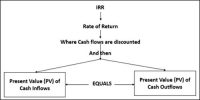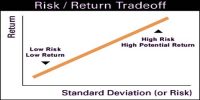Components of Cost of Project
Conceptually the cost of the project represents the total of all items of outlay associated with a project which are supported by long-term funds. It is the sum of the outlays on the following –
Land and site development: The cost of land and site development is the sum of the following:-
- Basis cost of land including conveyance and other allied charges;
- Premium payable on leasehold and conveyance charge;
- Cost of leveling and development.
Building and civil works: Building and civil works cover the following:
- Building for the main plant and equipment;
- Godowns, warehouse, and open yard facilities;
- Canteen, guesthouse, time office etc.
- Garage, sewers, drainage etc.
Plant and machinery: The cost of plant and machinery typically the most significant of the project cost consists of the following;
- Cost of imported machinery;
- Cost of indigenous machinery;
- Cost of stores and spares;
- Foundation and installation charges.
Technical know-how and engineering fees: When it is necessary to engage technical consultants or collaborations from India and or abroad for advice and help various technical matters like preparation of project report, choice of technology, selection of the plant and machinery, detailed engineering and so on.
Expenses on foreign technicians and training of local technicians abroad: Service of foreign technicians may be required in India for setting up the project and supervision the trial runs.
Miscellaneous fixed assets: Fixed assets and machinery which are not part of the direct manufacturing process may be referred to as miscellaneous fixed assets. They include items like furniture, office machinery, and equipment tools, vehicles etc.
Preliminary and capital issue expenses: Expenses incurred for identifying the project, conducting the market survey, preparing the feasibility report, drafting the memorandum and articles of association and incorporating the company are referred to as primary expenses.
Pre-operative expenses: Expenses of the following types incurred until the commencement of commercial production are referred to as pre-operative expenses:
- Establishing expenses;
- Rent, rates, and taxes;
- Traveling expenses;
- Interest and commitment charges on borrowings,
- Insurance charges;
- Mortgage expenses.
Margin money for working capital: The money for working capital is sometimes utilized for meeting over-runs in capital cost. This leads to a working capital problem when the project is commissioned.
Initial cash losses: Most of the projects incur cash losses in the initial years. Yet, promoters typically do not disclose the initial cash losses.















